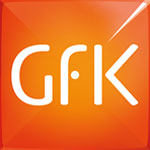Environmentally friendly purchases heat up in emerging markets

These are just two key findings from new Green Gauge Global research just released by GfK. Now in its third year, the study incorporates interviews with over 35 000 consumers in 25 key markets about their environmental attitudes and behaviours.
According to the new research, the proportions of consumers who factor environmental protection into their purchase decisions grew 6 percentage points in China and 5 points in Brazil, compared to 2011. Mexico and South Africa also recorded significant increases in the past year.
Yet 6 in 10 consumers globally feel that environmentally friendly product alternatives are too expensive - roughly the same proportion found in 2011. In fact, this sentiment is on the rise in some of the same nations where green buying increased - such as China (up 5 percentage points) and South Africa (up 7 points).
"On a global basis, it seems as if buying green leads naturally to concerns that one is paying too much," said Timothy Kenyon, director of the GfK Green Gauge Global study at GfK. "Knowing this, green-friendly companies entering new markets should be attuned to price concerns from the start - pricing products competitively to win loyal customers. Our research suggests that, with careful marketing, growth in the green market will sustain in key countries for years to come."
Glamour Greens
Green Gauge Global also tracks consumer segments defined by environment-related beliefs and behaviours. Glamour Greens, who have an average level of environmental concern but see a green lifestyle as a status indicator, now amount to 30% of consumers globally. The Jaded segment - sceptics who feel green issues are less important - grew by 2 points globally since last year, now representing 23% of all consumers.
Other key segments tracked in GGG research include Green inDeeds - people who show the highest concern for the environment and are the most likely to take the environment into account when buying products - and Carbon Cultured, who have higher environmental awareness but can lag in their behaviours. Lastly are the Green in Need - people have the desire, but lack the tools and know-how, to be more green.
For each of the 25 markets, GGG studies cover such essential topics as:
• concerns over pollution and global warming
• attitudes towards companies and governments on the topic of environmental protection
• barriers to green living, such as knowledge and time
• attitudes toward green products, including perceptions of quality, costliness, and social acceptability
• green behaviours, including how often consumers recycle, conserve resources, and talk to others about environmental issues
The markets covered by Green Gauge Global are Argentina, Australia, Brazil, Canada, China, Czech Republic, Egypt, France, Germany, India, Indonesia, Italy, Japan, Mexico, Poland, Russia, South Africa, South Korea, Spain, Sweden, Taiwan, Thailand, Turkey, UK, and the USA.
Source: GfK

The GfK Association was established in 1934 as a non-profit organization for the promotion of market research. Its membership consists of approximately 600 companies and individuals. The purpose of the Association is to develop innovative research methods in close cooperation with academic institutions, to promote the training and further education of market researchers, to observe the structures and developments in society, the economy and politics that play a key role in private consumption, and to research their effects on consumers. Survey results are made available to the membership. The GfK Association is a shareholder in GfK SE.
Go to: http://www.gfk.com





